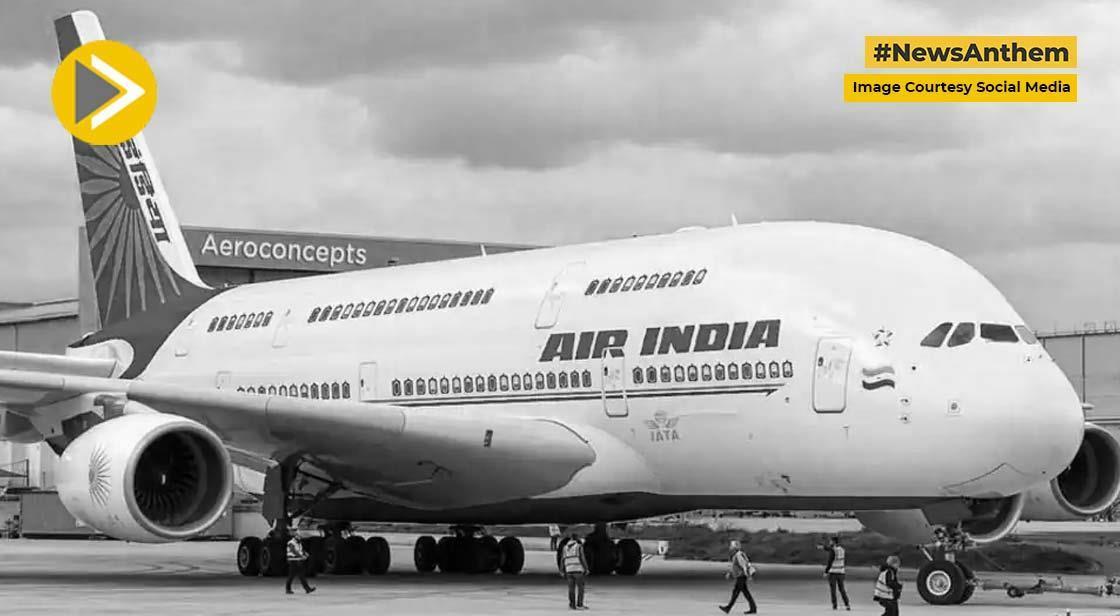Air India in Talks to Acquire More Widebody Jets from Airbus and Boeing: Report

News Synopsis
Air India is actively engaged in discussions with aerospace giants Boeing and Airbus to procure additional widebody aircraft, according to a report by a news agency . The move comes as part of the airline’s ambitious expansion strategy under the ownership of the Tata Group, which aims to strengthen its position in the global aviation market.
Multi-Billion Dollar Deal Under Consideration
As per sources cited in the report, the potential order is expected to be worth billions of dollars and will significantly enhance Air India’s long-haul capabilities. The discussions involve the purchase of 30 to 40 aircraft, including the Airbus A350 and Boeing 777X models.
Interestingly, an insider suggested that the deal could exceed 50 jets, but final terms are yet to be finalized. The decision is expected to become clearer in the coming months, with one source stating, "Things should become clearer closer to the Paris Air Show (in June)," as reported by a news agency.
Potential Expansion: Strengthening Air India’s Global Reach
If the deal goes through, it would be in addition to Air India’s massive 2023 order for 470 aircraft from both Boeing and Airbus, as well as the 100 Airbus jets ordered separately last year. Notably, most of these prior orders comprised narrowbody aircraft, making the latest potential widebody acquisition a crucial step toward fulfilling Air India’s international ambitions.
Currently, Air India has existing orders for:
-
50 Airbus A350s
-
10 Boeing 777Xs
-
20 Boeing 787 Dreamliners
This move aligns with the airline’s long-term vision of reclaiming its position as a leading international carrier while catering to the rising demand for international travel from India.
Surging Demand for International Travel from India
According to data from ratings agency ICRA, international passenger traffic from India is projected to grow by 15-20% in the current financial year, signaling a strong demand for more long-haul flights. In contrast, domestic air travel is expected to grow at a relatively slower rate of 7-10%.
This shift in travel patterns has prompted Air India to accelerate its widebody aircraft acquisition strategy, ensuring that it remains competitive against global airlines.
Challenges in Aircraft Deliveries: Supply Chain Constraints
Despite its ambitious expansion plans, Air India is facing significant delivery challenges due to global supply chain disruptions affecting aircraft manufacturing.
Several airlines worldwide are racing to secure early delivery slots for widebody aircraft, as production capacity remains limited. Moreover, India’s largest carrier, IndiGo, has already placed massive orders for narrowbody aircraft, further pressuring manufacturers like Airbus and Boeing to meet demand.
Air India’s CEO Campbell Wilson recently acknowledged these challenges, stating that the global shortage of aircraft is expected to persist for at least the next four years. This is primarily due to delays in the supply of key components such as engines, fuselage materials, and premium cabin interiors.
As a result, Air India has had to continue operating some of its older aircraft, which could slow down Tata Group’s five-year transformation strategy for the airline.
Competition with Global Airlines: Air India’s Market Strategy
Air India is actively working to regain market share that has been lost to international competitors such as Emirates, Lufthansa, and Turkish Airlines. These foreign carriers have successfully attracted Indian passengers by offering newer aircraft, superior in-flight experiences, and enhanced premium cabin services.
Indian Airlines vs Foreign Carriers
-
As per ICRA, Indian airlines currently account for 43-44% of international passenger traffic originating from India.
-
Foreign airlines continue to dominate the outbound market, benefiting from larger fleets, established international hubs, and greater operational efficiency.
To address this competitive gap, Air India and its low-cost subsidiary, Air India Express, are set to receive approximately 20 new aircraft, including both narrowbody and widebody planes, this year. These new aircraft deliveries, as per UK-based consultancy Cirium Ascend, will be crucial in executing Air India’s growth strategy in the long-haul segment.
Conclusion: Air India’s Ambitious Future
Air India’s latest move to acquire additional widebody aircraft marks a significant step in its global expansion journey under Tata Group’s leadership. If finalized, the multi-billion-dollar order could provide the airline with enhanced connectivity, increased passenger capacity, and greater market competitiveness against foreign carriers.
While supply chain challenges and delivery delays pose short-term hurdles, Air India remains committed to its transformation, aiming to reclaim its status as a premier international airline.
As industry observers await further clarity on the potential deal, all eyes are set on the Paris Air Show in June, where Air India’s future fleet expansion strategy could become more concrete.
You May Like









